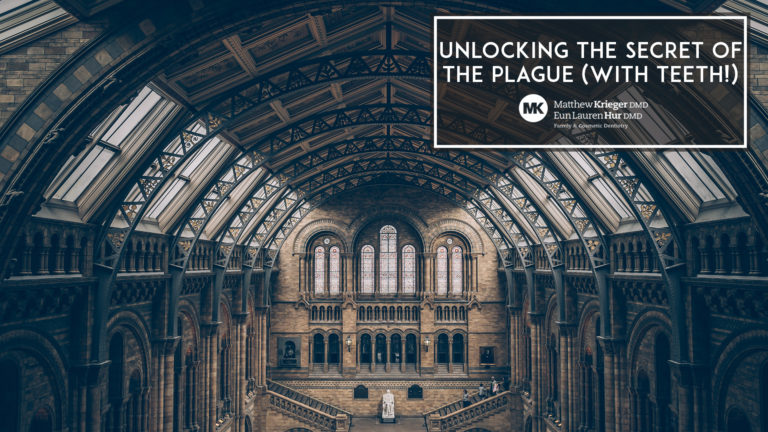Like all sorts of licensed professionals, being a dentist comes with a set (or series!) of letters tailing the doctor’s name. Every dentist has them, but have you ever wondered what they actually mean? And is there a difference between a DDS and a DMD? Should you be changing dentists to get a better experience?
So many questions! That’s why we’re addressing dental initials today on the blog.
A Bit of Dental History
Before we can discuss the difference between DDS and DMD, let’s take a look at where they came from. Originally, the only dental degree was the Doctor of Dental Surgery, but when Harvard opened its dental school in 1867, it threw a bit of a cog in the works. See, it prints its degrees in Latin, so at first, it tried translating the DDS title directly. That translation, as Harvard worked it out, was “Chirurgae Dentium Doctoris” — it was a pretty big mouthful.
Ultimately, Harvard decided to go with “Dentariae Medicinae Doctor,” now called the Doctor of Medicine in Dentistry. Many schools followed suit, with 22 of the 58 dental schools in the United States and Puerto Rico now awarding DMDs instead of DDSes.
What’s the Difference Between a DDS and a DMD?
There is literally no difference between the education a DDS receives when compared to a DMD. Both require a four year undergraduate degree in a related area, plus another four years of dental school. They both take a tough national exam, plus a state or regional licensing exam. And to top it off, they both take the same continuing education courses.
Only a few letters separate the DDSes of the world from the DMDs. No matter which one your dentist wears on their chest, you can expect the same high level of care.
There are a few other dental initials that could be useful to know about, like:
- FAGD (Fellow of the Academy of General Dentistry). A dentist that is committed to excellence may put in the effort to earn this distinct title. In order to do so, they must earn a minimum of 500 continuing education credits, pass a comprehensive exam and be a member of the Academy of General Dentists for at least five years.
- MAGD (Master of the Academy of General Dentistry). If a dentist has earned their FAGD, they can further grow their reputation by earning an additional 600 continuing education credits, with at least 400 of those being in hands-on courses. To maintain this status, the dentist in question has to complete at least 75 hours of continuing education every three years.
- RDH (Registered Dental Hygienist). Your friendly local dental hygienist is one of the most vital members of the dental team. They’ve received a degree in their area of expertise and maintain it with continuing education, just like the dentist that they work with. You’ll get your cleanings from your RDH, they may administer local anesthesia and nitrous oxide to patients (depending on what state you live in), remove calculus found below the gum line, apply fluoride and educate patients.
It takes a village to care for a dentist’s most valuable patients. When your dental office is full of alphabet soup, you can be assured that they’re the best of the best who reach for the stars. After all, you deserve the best dentists in the market, not just one that’s going through the motions.
Stop By and Meet Real Life DMDs!
Isn’t it about time you came in to see your DMDs, Drs. Krieger and Hur? We’re exploring the very edges of the most modern dental technology in order to produce a better, whiter smile for you every day, even if you’re in love with red wine or happen to be a Dunkin-aholic. When you care for your teeth, it’s a outward sign that you care for your world meticulously — and that’s never a bad thing.
Call us at 201-560-0606 or drop us an email today for a life-changing dental experience. Even if you’ve struggled with dentists in the past, we make the whole process fast and virtually painless.


